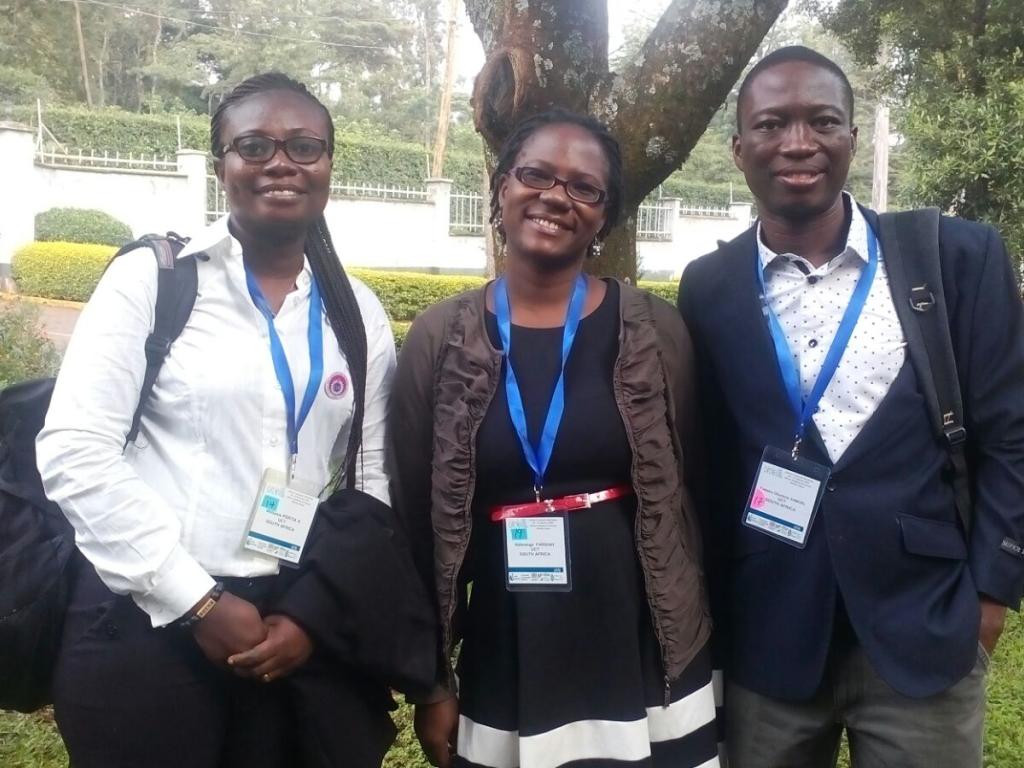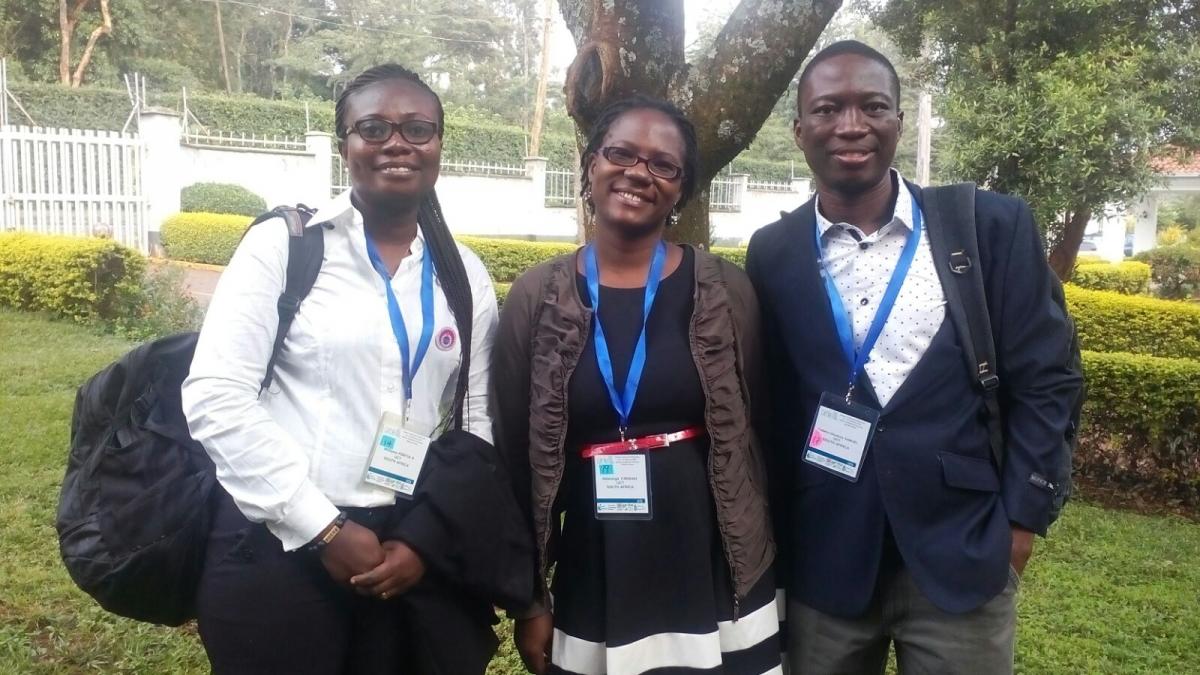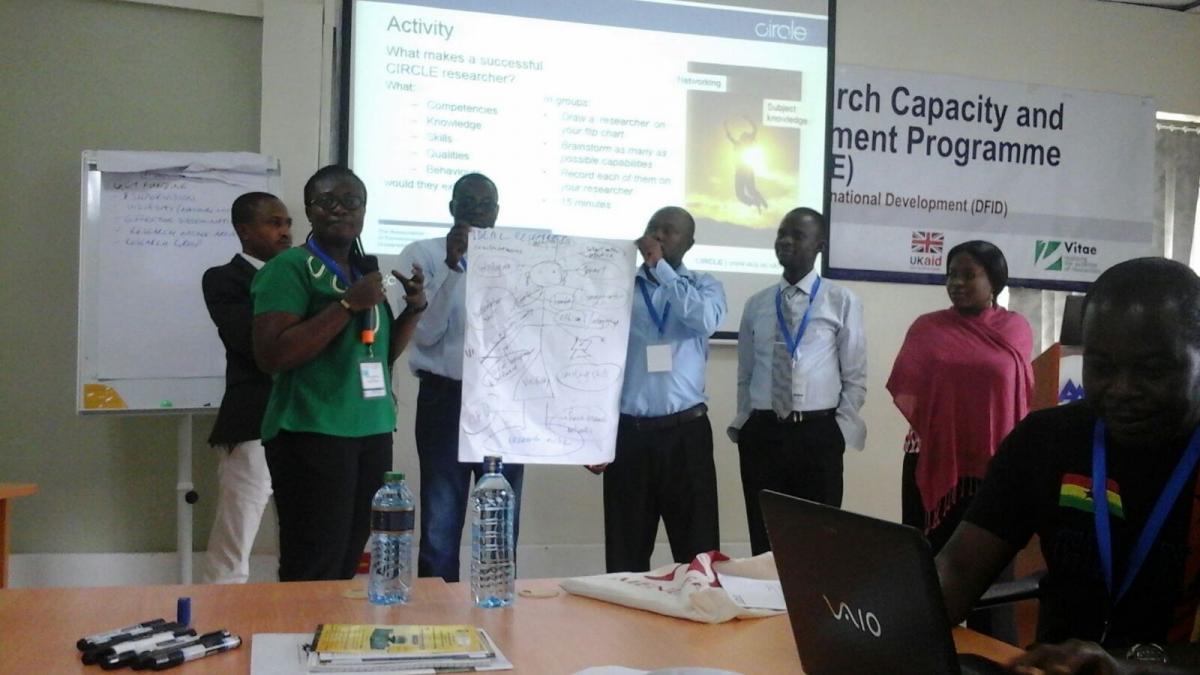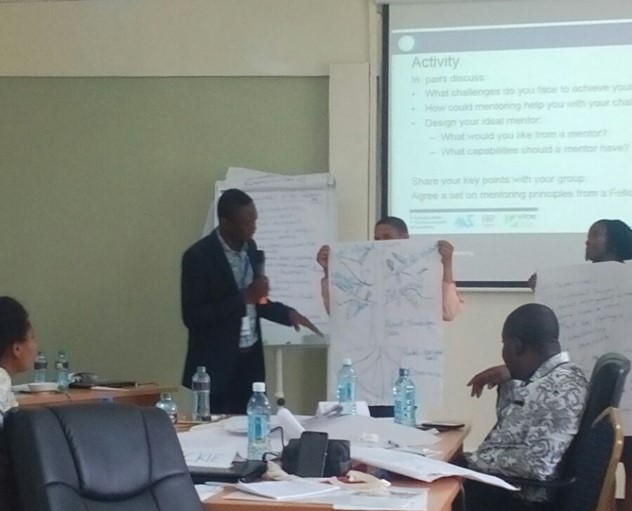Highlights of the CIRCLE Induction Workshop Held in Nairobi from 10-12 February, 2016

By Olushola Fadairo, Portia A. Williams and Faridah Nalwanga
CIRCLE Visiting Fellows
Climate Impact Research Capacity and Leadership Enhancement Programme (CIRCLE) is an initiative of the Department for International Development (DFID) of the United Kingdom (UK) to develop the skills and research output of early career African researchers in the field of climate change and its local impacts on development. The programme runs from 2014 to 2018 with the second cohort of CIRCLE Visiting Fellows (CVFs) beginning in January 2016. As part of inception for cohort II, the CIRCLE implementing institutions: the African Academy of Sciences (AAS) and the Association of Commonwealth Universities (ACU), organised an induction workshop that offered an opportunity for the cohort II CVFs to meet physically and go through the objectives of the programme as well as meet the various stakeholders. It also gave the CVFs an opportunity to meet with the researchers from cohort I and learn from their experiences. The overall thrust of the workshop was to help CVFs understand the requirements for impact and effective research uptake. The workshop was held at the secretariat of AAS in Nairobi, Kenya, from 10th to 12th February, 2016. Twenty-nine researchers nominated from universities and research institutes in seven African countries participated in the workshop. These included researchers from Nigeria, Ghana and Uganda who are being hosted by the African Climate Development Initiative (ACDI) at the University of Cape Town in South Africa.

The first day of the workshop focused on introduction into the CIRCLE programme by stakeholders from AAS and ACU. Insights were given on the role of different partners, roles and responsibilities of CVFs as well as funding resources available to CVFs during the fellowship period. There were also presentations on the fellowship experience by cohort II CVFs. On mentoring and developing the research uptake to disseminate the research on the international front, presentations were made from the Quality Support Component (QSC), a consortium of internationally renowned institutions led by the Natural Resources Institute (NRI) at the University of Greenwich. The second and third days concentrated on training led by Vitae, an international programme focused on enhancing the professional and career development opportunities for researchers to support early career researchers. The discussion-cantered composition of the workshop programme was conducive to realisation of peer learning and experience sharing. The intensive training and discussion to understand different relationships in the fellowship partnership and the requirements for impact/effective research uptake have given rise to concrete ideas/decisions for making best use of the fellowship opportunity among participants. CVFs hosted by ACDI in the University of Cape Town, led group presentations from the various activities undertaken during the workshop.


The following may be singled out as notable outcomes of the workshop:
- It facilitated improved understanding of participants about the roles of the different CIRCLE partners/stakeholders and the objective of the programme.
- At the end of the workshop, participants were able to develop research uptake plans for their current climate impact researches.
- Participants were motivated to explore additional opportunities for further training and other support in their host institutions.
- Participants had better understanding of Research Development Framework (RDF) and Open Researcher and Contributor ID (ORCID).
As part of actions taken, participants are beginning to register online for the ORCID and some have received their identification number. In conclusion, the workshop not only achieved the CIRCLE workshop objectives it had set out to, but also facilitated active and positive discussions, feedbacks and comments among the participants concerning the orientation of CIRCLE fellowship. We are grateful to African Climate Development Initiative (ACDI) of the University of Cape Town for hosting three of the CVFs this year and look forward to a smooth collaboration towards advancing the frontiers in climate change research efforts in Africa.